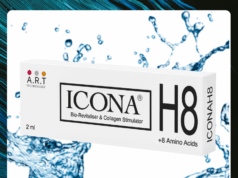In a clinical landscape where patient trust is paramount, the recent case involving Dr Bernard Tan Wen Sheng of Bay Aesthetics Clinic jolted Singapore’s aesthetic medicine community. Found guilty on 30 June 2025 of forging two certificates of competence and providing false information to the Ministry of Health (MOH), Dr Tan’s actions serve as a cautionary tale of professional shortcuts with severe reputational implications.
A Shortcut That Unravels
Dr Tan submitted four forged certificates during his application in February 2023 to run services including botulinum toxin injections, fillers, chemical peels, and IPL hair removal. Using his wife’s 2017 ADEG-issued documents, he overlaid his name on hers, scanning and submitting them as genuine. His misdirection: he lost originals to a fire, claimed they were grainy, and insisted his attendance at workshops as truth — statements belied by MOH’s checks.
The MOH confirmation process is not bureaucratic theatre, it safeguards patient welfare. Quick detection by the Ministry unveiled gaps in two of his submissions: chemical peels and IPL hair removal. While allowed to continue offering safe, verified services, the deception shook the profession’s integrity.
Under Pressure: What Went Wrong?
Why did Dr Tan, a doctor for 11 years with a previously clean record, take such a step? His defence cited stress from launching his clinic, lost documents in a 2017 house fire, and his belief that he had completed all requisite courses, even relying on a 2019 Aesthetic Medicine Certificate from the American Academy. In his lawyers’ view, his forgery was a knee‑jerk, not pre‑meditated, reaction under duress .
However, whether intentional or not, the outcome is the same: diminished public confidence and reputational damage. Professional registration does not immunise one from accountability.
A Framework of Accountability
This incident underscores three essential elements in aesthetic medicine:
1. Transparency in credentialing. Regulatory bodies rely on clear, authentic documentation. Forged certificates not only violate laws but erode the foundation of patient trust.
2. Ongoing professional development. Even after launching in April 2023, Dr Tan completed the missing workshops—but only under scrutiny . True reflection in professional growth demands proactive, uncoerced upskilling.
3. Ethical responsibility. When financial or logistical pressures collide with ethical imperatives, the latter must prevail. A professional physician cannot shortcut public safety.
The Road Ahead: Risk, Response, Reputation
Singapore’s Deputy Public Prosecutor argued that sentencing Dr Tan should be a deterrent both for the special nature of the offences and their implications for public health . As his sentencing hearing approaches on 29 July 2025, the outcome will set a benchmark. Fines between S$6,000 and S$10,000 have precedent; forgery carries potential jail time of up to four years per count.
For peers in the aesthetic industry, this serves as a reminder: credentials are more than paperwork, they’re a testament to competence. In a field where trust is currency, clarity and honesty must never be compromised.













